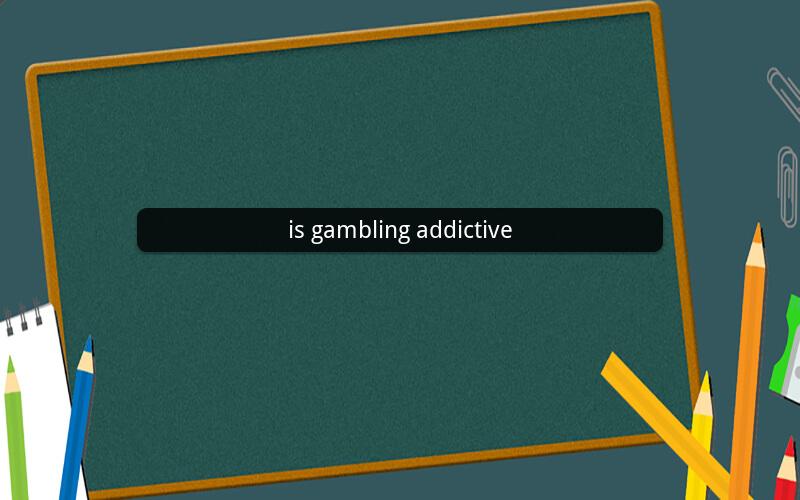
Table of Contents
1. Understanding Addiction
2. The Nature of Gambling
3. Factors Contributing to Gambling Addiction
4. Signs and Symptoms of Gambling Addiction
5. The Impact of Gambling Addiction on Individuals
6. The Impact of Gambling Addiction on Families
7. The Impact of Gambling Addiction on Society
8. Treatment and Support for Gambling Addiction
9. Prevention and Education
10. Conclusion
1. Understanding Addiction
Addiction is a complex condition characterized by compulsive engagement in rewarding stimuli despite adverse consequences. It involves a range of mental, behavioral, and physical health issues. When discussing gambling, it's crucial to understand that addiction is a spectrum, with varying degrees of severity.
2. The Nature of Gambling
Gambling involves risking something of value on an event with an uncertain outcome. It can be an enjoyable pastime for many, but it can also lead to addiction. The thrill of the unknown and the potential for financial gain make gambling highly addictive for some individuals.
3. Factors Contributing to Gambling Addiction
Several factors can contribute to the development of gambling addiction. These include genetic predisposition, environmental factors, and personal vulnerabilities. Here are some key factors:
- Genetic Predisposition: Research indicates that a genetic component can play a role in gambling addiction.
- Environmental Factors: Exposure to gambling through family, friends, or media can influence an individual's risk of developing an addiction.
- Personal Vulnerabilities: Psychological factors, such as low self-esteem, anxiety, or depression, can make individuals more susceptible to gambling addiction.
4. Signs and Symptoms of Gambling Addiction
Identifying gambling addiction can be challenging, as it often involves secrecy and denial. Here are some common signs and symptoms:
- Compulsive Gambling: A strong urge to gamble, even when faced with negative consequences.
- Loss of Control: Inability to stop gambling, even when it causes significant problems.
- Lying and Deception: Hiding gambling activities from friends and family.
- Financial Problems: Borrowing money, missing payments, or selling possessions to fund gambling.
- Emotional Distress: Feeling anxious, depressed, or guilty after gambling.
5. The Impact of Gambling Addiction on Individuals
Gambling addiction can have a profound impact on individuals, affecting their physical, mental, and emotional well-being. Here are some consequences:
- Financial Ruin: Debt, bankruptcy, and loss of savings.
- Mental Health Issues: Anxiety, depression, and substance abuse.
- Physical Health Issues: Sleep disorders, headaches, and gastrointestinal problems.
- Relationship Strain: Divorce, family conflicts, and loss of friendships.
6. The Impact of Gambling Addiction on Families
Gambling addiction can also take a toll on families. Here are some ways it affects loved ones:
- Financial Burden: The cost of gambling can strain family finances, leading to financial stress and conflict.
- Emotional Pain: Family members may feel betrayed, angry, or hurt by the addiction.
- Support System: Gambling addiction can weaken the support system for individuals struggling with addiction.
7. The Impact of Gambling Addiction on Society
Gambling addiction has broader societal implications, including:
- Economic Costs: Lost productivity, increased healthcare costs, and decreased tax revenue.
- Social Costs: Increased crime rates, unemployment, and substance abuse.
- Community Impact: Decreased community resources and increased demand for social services.
8. Treatment and Support for Gambling Addiction
Treatment for gambling addiction involves a combination of therapy, support groups, and self-help strategies. Here are some common treatment approaches:
- Cognitive-Behavioral Therapy (CBT): Helps individuals identify and change negative thought patterns and behaviors associated with gambling.
- Support Groups: Provides a supportive environment for individuals to share experiences and strategies for recovery.
- Self-Help Strategies: Includes mindfulness, stress management, and financial planning.
9. Prevention and Education
Prevention and education are crucial in addressing gambling addiction. Here are some strategies:
- Public Awareness Campaigns: Increase public awareness about the risks of gambling addiction.
- Educational Programs: Provide education on responsible gambling and the signs of addiction.
- Regulation and Enforcement: Implement strict regulations and enforce gambling laws to protect vulnerable individuals.
10. Conclusion
Gambling addiction is a serious condition that can have profound consequences for individuals, families, and society. Understanding the nature of addiction, identifying risk factors, and seeking treatment are essential steps in addressing this problem. By promoting prevention and education, we can work towards a healthier, more informed society.
Questions and Answers
1. What are the genetic factors contributing to gambling addiction?
Answer: Genetic predisposition may play a role in the development of gambling addiction, although the exact mechanisms are not fully understood.
2. How does the environment contribute to gambling addiction?
Answer: Exposure to gambling through family, friends, or media can increase an individual's risk of developing an addiction.
3. What are the signs of gambling addiction?
Answer: Signs include compulsive gambling, loss of control, lying and deception, financial problems, and emotional distress.
4. How does gambling addiction affect individuals?
Answer: It can lead to financial ruin, mental health issues, physical health problems, and relationship strain.
5. What treatment options are available for gambling addiction?
Answer: Treatment involves therapy, support groups, and self-help strategies, such as cognitive-behavioral therapy and financial planning.
6. How can I identify a gambling addiction in someone I know?
Answer: Look for signs such as secretive behavior, financial problems, and emotional distress.
7. What resources are available for individuals struggling with gambling addiction?
Answer: Support groups, therapy services, and hotlines can provide assistance and guidance.
8. How can I help a loved one who is struggling with gambling addiction?
Answer: Encourage them to seek professional help, offer support, and be patient during their recovery process.
9. How can I prevent gambling addiction in my family?
Answer: Promote open communication, educate yourself and your family about the risks of gambling, and set healthy boundaries.
10. What is the role of education in preventing gambling addiction?
Answer: Education can increase awareness about the risks of gambling and help individuals make informed decisions about their gambling habits.